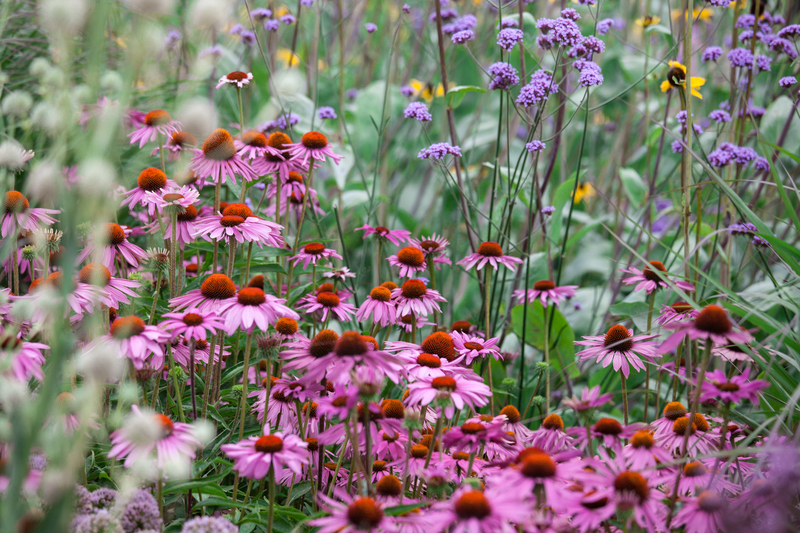Plant the seed of knowledge with 9 essential tips for those new to gardening
Posted on 18/09/2025
Plant the Seed of Knowledge with 9 Essential Tips for Those New to Gardening
Are you eager to transform your living space with lush greenery and vibrant blooms? If you're just starting your gardening adventure, planting the seed of knowledge is your very first--and most crucial--step. With the right advice, even the most inexperienced gardener can blossom into a plant expert.
In this comprehensive guide, we'll explore 9 essential tips for beginners in gardening that will help you develop a thriving, beautiful haven in your backyard, balcony, or even windowsill. Whether you're growing vegetables, nurturing flowers, or cultivating urban greenery, these practical recommendations will plant the foundation for success.
Why Plant the Seed of Knowledge Matters in Gardening
Gardening is much more than putting seeds in soil and hoping for the best. It requires patience, a willingness to learn, and an understanding of nature's cycles. By planting the seed of knowledge, you enable yourself to make informed choices--saving time, money, and frustration.
With each new tip you grasp, you're not just growing plants; you're cultivating a rewarding hobby, enhancing your well-being, and creating a positive impact on your surroundings. So let's get your gardening journey started with these top 9 tips for new gardeners!

1. Start Small and Grow Your Confidence
Many first-time gardeners dive in eagerly, dreaming of vibrant flowerbeds or bountiful vegetable harvests. Yet, the most seasoned horticulturists recommend starting small to plant the seed of knowledge effectively.
- Choose a manageable area: Begin with a few pots, a single raised bed, or a small designated patch.
- Limit your plant choices: Focus on 3-5 varieties that are easy to grow and suited to your climate.
- Monitor your progress: Smaller projects make it easier to observe, learn, and adjust your approach as you gain experience.
Remember: Every gardener was once a beginner. Celebrate each sprout and bud as a milestone on your green journey!
2. Understand Your Local Environment
One of the most common mistakes new gardeners make is overlooking the importance of local conditions. Planting the seed of knowledge begins by understanding your environment:
- Climate and weather: Know your growing zone, frost dates, and typical rainfall patterns.
- Sunlight exposure: Observe where sunlight falls in your space--full sun, partial shade, or full shade make a big difference in plant selection.
- Soil type: Is your soil sandy, loamy, or clay-based? Simple soil tests at home or via local extension offices can reveal this.
Once you understand these factors, select plants that will thrive in your unique conditions for the best chances of gardening success.
3. Select the Right Plants for Beginners
Gardening for beginners is much easier with the right plant choices. Some plants are highly resilient and forgiving, while others demand expert care.
- Vegetables: Radishes, lettuce, green beans, and cherry tomatoes are known for their reliability and short growing cycles.
- Herbs: Basil, mint, parsley, and chives grow quickly and can even thrive indoors.
- Flowers: Marigolds, sunflowers, zinnias, and nasturtiums are colorful and robust options.
Visit local nurseries for advice--these experts are happy to help you plant the seeds of success in your new gardening venture.
4. Learn the Art of Watering
Overwatering and underwatering are pitfalls for every beginner gardener. Getting watering right is an essential tip:
- Check soil moisture: Stick your finger an inch into the soil; only water if it feels dry.
- Water at the right time: Early morning is best to reduce evaporation and prevent diseases.
- Use the right method: Water at the base of the plant rather than from above to keep leaves dry and prevent disease.
Planting the seed of knowledge about proper watering will dramatically increase your garden's success, ensuring healthy roots and vibrant growth.
5. Feed Your Soil, Not Just Your Plants
Healthy plants come from healthy soil. Nourish your soil as much as your plants:
- Composting: Add kitchen scraps and garden waste to create rich organic matter.
- Mulching: Use straw, leaves, or bark chips to retain moisture, suppress weeds, and enrich the soil as it decomposes.
- Organic fertilizers: Choose slow-release and natural amendments to provide balanced nutrition.
When you care for your soil, you're planting the seed of knowledge that produces abundant, resilient gardens year after year!
6. Master Basic Plant Care Techniques
With care and attention to the basics, even the most novice gardener can see flourishing results. Essential gardening techniques include:
- Pruning: Learn when and how to trim plants to encourage healthy growth and blooms.
- Weeding: Remove unwanted plants regularly to reduce competition for nutrients and water.
- Staking and supporting: Provide support for climbing or tall plants to prevent damage.
Experiment with different tools and approaches--there's no "one-size-fits-all" in gardening, and hands-on experience will help you discover what works best in your unique garden.
7. Be Patient and Observant
Patience is the gardener's best friend. Nature rarely works on our schedule, but being observant can help you unpack new lessons every day.
- Monitor plant growth: Keep a gardening journal--record dates, weather, planting, and changes.
- Look for signs of stress: Yellowing leaves, wilting, or spots can indicate pests or care issues.
- Celebrate small wins: Every leaf, bud, and flower is a testament to your growing knowledge!
By embracing a mindset of observation, you truly plant the seed of gardening wisdom for future seasons.
8. Connect with Other Gardeners
The gardening community is vast, warm, and endlessly informative. Learning from others accelerates your growth:
- Join local gardening groups: In-person or online forums are wonderful for exchanging advice and resources.
- Visit community gardens: Get involved, volunteer, and gain hands-on experience from seasoned experts.
- Attend workshops or plant swaps: These events are great for making friends and learning practical tips--not to mention bringing home new plants!
By connecting with others, you'll find support for every challenge and celebrate every triumph as you nurture your garden and your knowledge.

9. Enjoy the Journey--And Grow Beyond the Basics!
The true joy of gardening comes from the ongoing process of learning and growth. Once you've mastered the basics, continue planting the seed of knowledge by exploring:
- New plant varieties: Challenge yourself with rare flowers, unique vegetables, or exotic houseplants.
- Sustainable practices: Try organic gardening, permaculture, or pollinator-friendly methods to make a positive environmental impact.
- Garden design: Experiment with layouts, companion planting, and vertical gardening for maximum beauty and yield.
Every season, every success, and every setback is a lesson that strengthens your skills and deepens your love for gardening.
Final Thoughts: Start Planting the Seed of Knowledge Today
No matter your age, experience, or available space, gardening opens the door to a world of beauty, mindfulness, and creativity. By following these 9 essential tips, you can confidently plant the seed of knowledge that will blossom into a lifelong passion for nurturing plants and the environment.
- Start small.
- Observe nature's rhythms.
- Connect with others.
- Celebrate growth--yours and your garden's!
So gather your tools, your seeds, and your curiosity, and take the first step. Remember: The garden you dream of tomorrow begins with the knowledge you plant today.
Frequently Asked Questions about Gardening for Beginners
- What are the easiest plants for a beginner gardener?
Try herbs like basil and mint, vegetables like lettuce and radishes, or flowers such as marigolds and sunflowers. - How often should I water my new plants?
It depends on plant type and soil, but most need consistent moisture--check the soil an inch deep for dryness. - Do I need to use chemical fertilizers?
No! Many natural alternatives such as compost and organic mulch provide excellent nutrition.
Recommended Resources for New Gardeners
- Gardeners.com - Gardening Supplies & Tips
- Royal Horticultural Society - Beginners' Guide
- The Old Farmer's Almanac - Gardening Advice
If you liked this article on how to plant the seed of knowledge with essential tips for new gardeners, please share it and help others grow their own green oasis!

